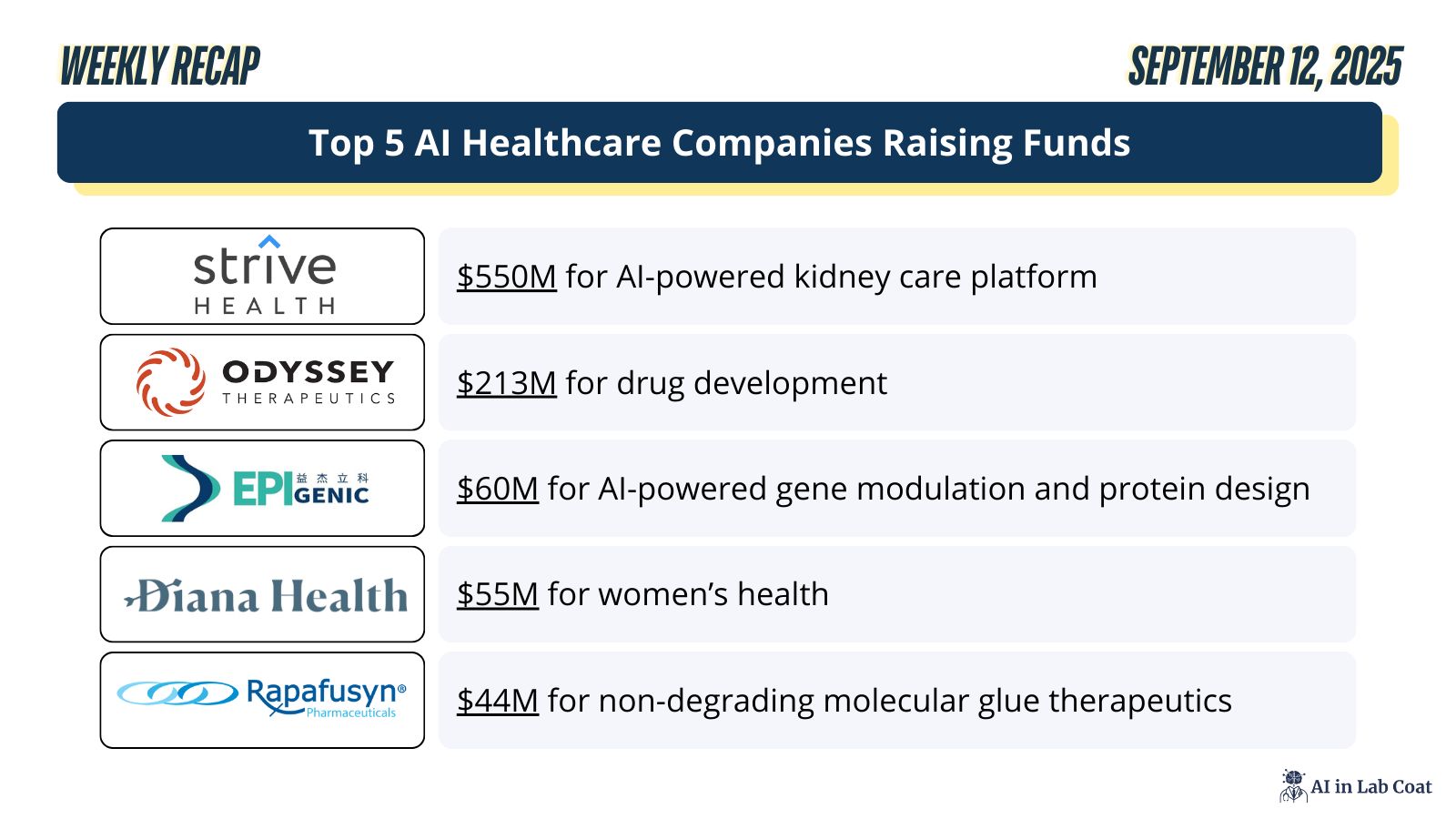
Happy Friday! It’s September 12th.
The FDA is gearing up to tackle one of the fastest-moving corners of digital health: AI mental health devices. In November, its Digital Health Advisory Committee will meet to discuss chatbots, virtual therapists, and other AI tools promising to fill the mental health care gap.
That conversation can’t come soon enough. We’re seeing these “tools” flood the market, often with little evidence behind their claims, and regulators are doing their best to figure out where they fit.
Whatever the FDA decides, it will set the tone for how we treat AI therapists for years to come.
Our picks for the week:
Featured Research: Detecting Dementia with Retinal Age
Perspective: AI Scribes Now Regulated in Australia
Read Time: 3 minutes
FEATURED RESEARCH
Non-Invasive AI Eye Test Could Transform Early Dementia Screening and Prevention

Retinal photos may soon help predict who is most likely to face cognitive decline. Researchers at the National University of Singapore developed RetiPhenoAge, a deep-learning biomarker that estimates the biological age of the retina and links it to brain health.
The team followed 510 patients from Singapore memory clinics for five years. Those with older “retinal age” were 34% more likely to develop cognitive decline and 43% more likely to progress to dementia over the study period.
To check generalizability, they analyzed data from 33,000+ participants in the UK Biobank and found a similar association over nearly 12 years of follow-up!
A non-invasive brain health check: Unlike costly tests like brain imaging or blood-based aging clocks, retinal photography is quick, cheap, and already available in many clinics.
The retina shares key features with brain tissue, making it a useful “window” into neurodegeneration.
The researchers also found links between older retinal age and MRI markers of small vessel disease and brain atrophy, as well as blood proteins tied to inflammation and aging.
What This Could Mean: RetiPhenoAge could make dementia screening more accessible, helping identify at-risk patients years before symptoms appear.
The team hopes to integrate this tool into community health checks and eventually use it to track responses to early interventions.
For more details: Full Article
Brain Booster
Which of the following is the most common cause of dementia in older adults?
Select the right answer! (See explanation below and source)
What Caught My Eye
PERSPECTIVE
Australia Becomes One of the First Countries to Regulate AI Scribes as Medical Devices
AI scribes are popping up in more clinics, tools that record conversations between doctors and patients, write notes and even produce referral letters. In Australia, one in four GPs already use them, and children’s hospitals are trialing them.
But now the TGA (Australia’s medical device regulator) has ruled that some AI scribes are medical devices, especially those that make diagnoses or recommendations. That means they’ll need to be registered, prove they work as claimed and report any safety issues.
Experts say this is a good step but patients need to be told. Accuracy can drop off with accents or noisy environments and privacy policies vary on where recordings are stored or how long they’re kept. And you should be able to opt out without losing care.
AI scribes may save time but trust depends on transparency, consent and accountability.
For more details: Full Article
Top Funded Startups

Byte-Sized Break
📢 Other Happenings in Healthcare AI
A meta-analysis of 53 studies in PLOS Medicine found that machine learning algorithms perform no better than traditional tools at predicting suicide or self-harm, with high false negative rates limiting clinical usefulness. [Link]
Rep. Ami Bera suggested Congress could model federal healthcare AI regulations on California and Colorado laws, pushing for a national framework, ongoing oversight, and a potential AI subcommittee to set guardrails as technology rapidly evolves. [Link]
Tempus received FDA 510(k) clearance for an updated version of its Tempus Pixel AI-powered cardiac imaging platform, now capable of generating T1 and T2 inline maps for more precise heart tissue analysis. [Link]
Have a Great Weekend!

❤️ Help us create something you'll love—tell us what matters!
💬 We read all of your replies, comments, and questions.
👉 See you all next week! - Bauris
Trivia Answer: D) Alzheimer's disease
Alzheimer's disease is the leading cause of dementia, accounting for 60–80% of cases. It involves progressive brain cell damage and is characterized by memory loss, confusion, and changes in thinking and behavior. [Source]


